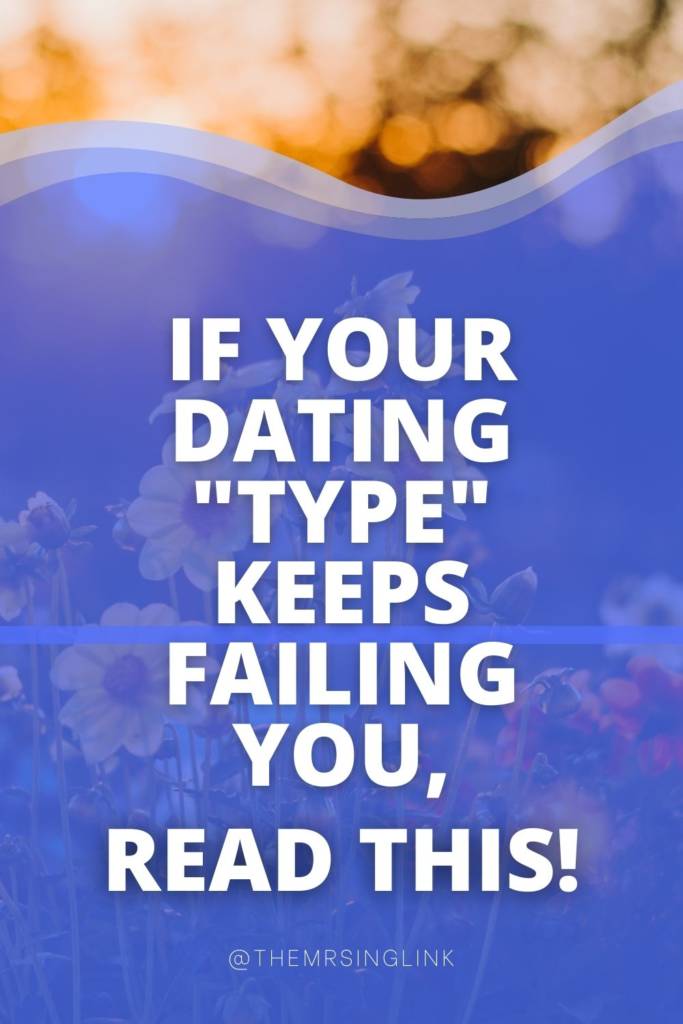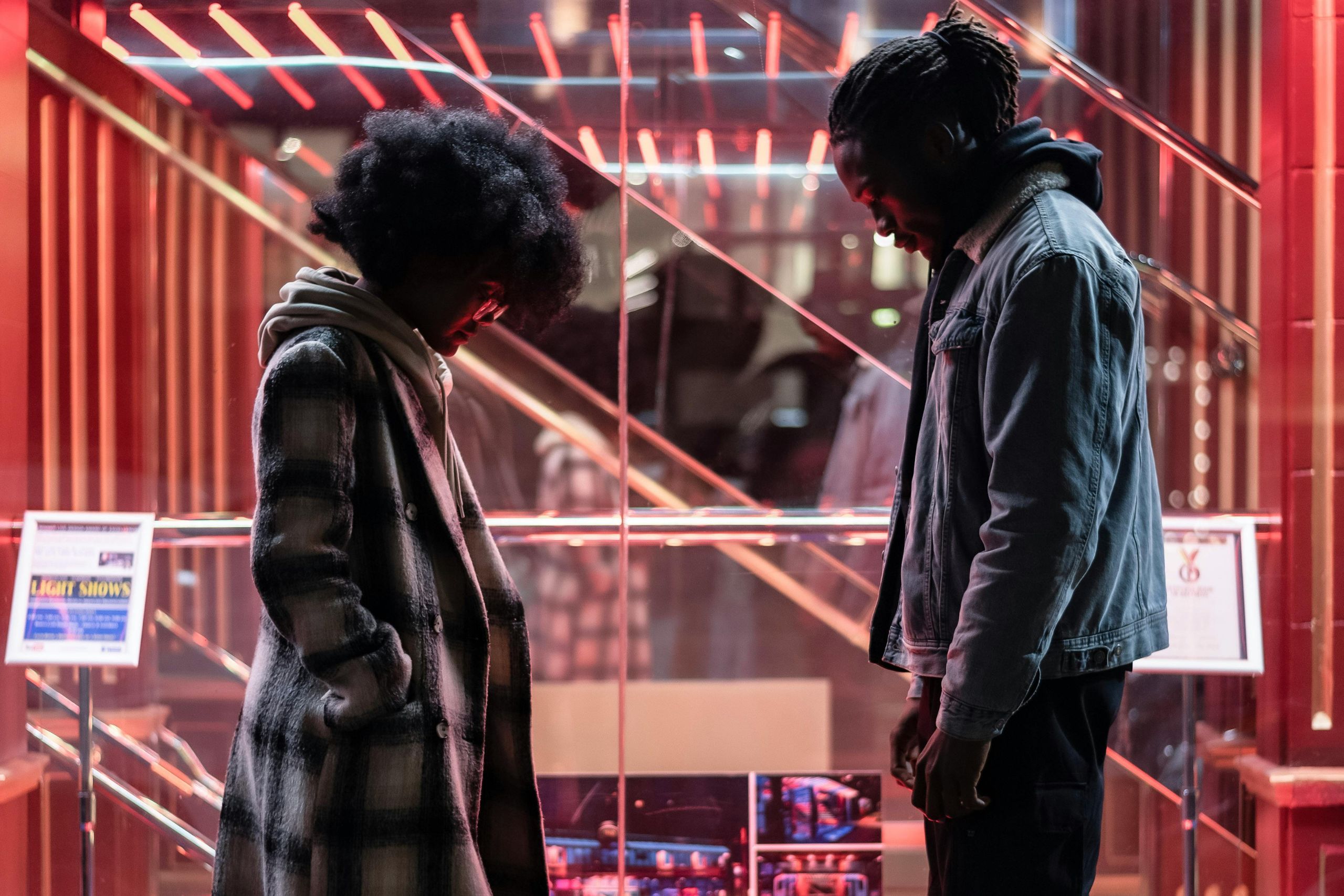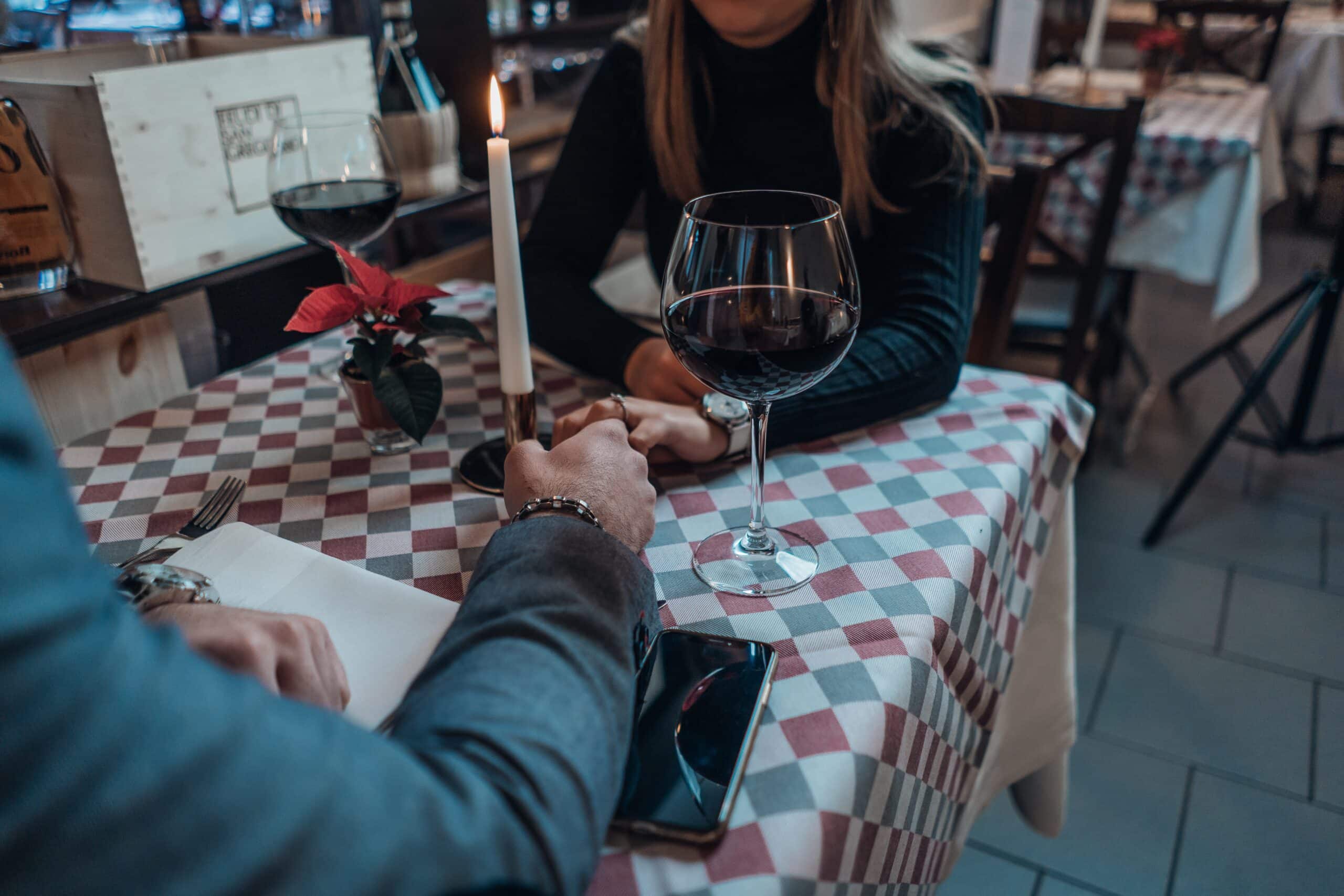What having a “type” actually means and where it stems from, why your “type” may be more “restricting” than helpful, and how to evolve from dating strictly within your “type” – these are questions you will find answers to within this post.
So if your dating “type” has failed you or always seems to bring about more pain than the Love you’re looking for, then this post is definitely for you.
First, I want to clear something out of the way – incompatibility is inevitable with or without having a “type”, so keep that in mind.
Otherwise, almost everyone would classify as having some sort of “type”. Some far more narrow, descriptive, superficial, and unrealistic – let’s be real here.
So before we move on, take a moment and really reflect on your ideal “type”. Write it down in list form on paper or on your computer. Don’t hesitate, just write what comes to mind.
Yet, unfortunately, I think the bigger picture of having a “type” is lost once it literally becomes the face of your dating lens…and especially when it comes to finding Love. And that’s just it – most believe their “type” IS the gateway to true Love and relationship compatibility/happiness.
But in this post I hope to help you reconsider that belief…and the hype behind your dating “type”.

If you haven’t found Love from your dating “type”, read this
the “dating type” has become entirely superficial and restricting
Now take a look at your list. I’ll bet there are multiple physical and material attributes listed. That’s okay, don’t panic yet.
*Material attributes consist of personal lifestyle, common stereotypes ( examples such as the “hipster” vibe, real “southern gentlemen”, or tattooed musician “types”), personal aesthetics (taste in clothes and music, smoking/drinking, hairstyle, kind of car, self-care, etc.), the size of his wallet, the level of rank or “prestigious-ness” in his job title, social popularity or fan base, etc.
But what happens when you stumble upon the guy with the luxuriously long, Fabio-like, man-bun style hair who teaches kids for a living (your absolute, dream, let’s say)…but you cower over him by 3-4 inches? Here’s what I’m getting at:
Is it REALLY ever logical to expect to find someone that checks off every SINGLE minute superficial attribute on your list? At what point is finding the right *person more important than the right *partner?
We ALL have [physical] preferences – this is totally natural. And that’s what they should BE – *preferences*. Having a “type” is quite literally a very surface layer level of attraction to someone. Likely someone you fall for quickly, instantly – without much needed consideration or critical information about who the person really is.
BUT, does that mean you’ll be attracted to the guy who happens to literally check off every bullet point on your list? Um, no, attraction STILL isn’t a guarantee. Does him being a 10 out of 10 make him Mr. Perfect for you? No, no it doesn’t – he could still be a complete asshat behind that college degree, well-cared-for physique, and seemingly “down to earth” attitude who preaches that family is #1.
That said, if you wrote down “brown/dark hair” on your list…does that really mean you’ve never been attracted to/thought someone was attractive with blonde hair? Worshipping this idea of a “type” becomes more restricting of options when the focus is on wanting someone who fits this fabricated, ideal image of who they should be in your eyes. Now, sure, not everyone is for you as you are not for everyone, but by taking a pretty intricate cluster of attributes (such as your “type” list, let’s say) and shoving it all into a singular box, you’re essentially weeding out those who damn-near perfectly fit the bill, minus something missing [from your list] that has been blown to scale. It’s important not to let the super shallow aspect of a “type” get in the way of finding *that balance in a compatible partner.
Because finding “the right match” in a partner (not an image) should be *the focus.
How you can evolve outside of your “type”
- Start treating your “type” as a list of preferences, not a strict zero alternative.
- Rearrange your preferences by *vital importance – consider what you will and will not TOLERATE, zero exceptions (i.e., smoking, tattoos, has kids, etc.), and start making the necessary “adjustments“/eliminations accordingly. *This is not to be confused with lowering your “standards” – you are not doing that here.
- Consider the fact that people’s looks, personal style, and even lifestyle changes – with age, time, growth, maturity, etc. – as will yours.
- Shift your focus from the things that initially attract you to someone (like that of your “type”) and instead seek connection and compatibility in a partner. Reflect on this prompt: If you found the list-‘perfect’ person tomorrow, how would you feel if they labeled you as “not their type” based on one of your own preferences (i.e., your short hair, the way you dress, having tattoos, being a social drinker, etc.)? Just a little introspection.
A “type” often stems much, much deeper than just preferences
Obviously having a “type” goes far deeper than what looks pleasing to the eye on the outside, right? I’m talking quirks, traits, habits, attitude, confidence, and strengths all the way down to their own unconscious personality, behaviors, and even unresolved trauma. This is where the whole “bad boy” craze begins, among other things.
You don’t just suddenly wake up one day and realize, “This is the type of person I need and want to be with!“
No, no, no – that’s learned and conditioned over time, a long period of time. In fact, you might not call this a “type” at all, but a pattern of behaviors you seek that are familiar to you. For instance, if you grew up with a fairly absent mother or father, this is behavior considered familiar in a romantic partner. *FYI, everyone likely shares and experiences this on some level, and not just on a romantic level.
This correlation isn’t always so obvious – a better grasp and understanding of this requires a more introspective approach.
For me, having a fairly normal childhood (from what is seen and understood on the outside), I recently woke up to the layers of generational dysfunction within my family and upbringing. With the help of a therapist, he was able to help me uncover my own trauma (most of which stemmed from childhood) and it really put some of my past relationships (as well as my own conditioned behaviors and thinking) into perspective. I deeeeeeeeply craved being seen, heard, and accepted by others (especially a partner) – it was like I needed their approval and adoration to feel worthy as a person, otherwise, I feared they would leave and abandon me. It had everything to do with my innate worth and value as a person, and I was unconsciously the emotional push-pull type – anxiously attaching then withdrawing.
I also needed others in order to feel whole, or in order to understand a sense of who I was. And when I wasn’t getting that from a partner I would feel threatened, then become distrustful, irrational, and self-neglectful in those relationships. It often felt like I was lost, didn’t know who I was or what I needed (and just didn’t care), and didn’t know how I would “survive” on my own without this person in my life.
With that, if you were to consider many of your past experiences with your dating “type”, you might be able to find a distinct pattern between them or all of them. This is where you’ll encounter those who struggle with self-sabotaging “good” relationships, always being lied to and cheated on (or vice versa), end up with someone emotionally unstable (who goes hot and cold), or even struggle with multiple, ongoing abusive relationships.
The reality could very well be that your type is simply not right [healthy] for you.
How you can evolve outside of your “type”
- If you notice or have a consistent negative pattern (beyond harmless incompatibility) in your previous relationships, take the steps to understand from an introspective viewpoint (a professional can serve as your best help in what needs to be surfaced).
- Start analyzing your “type” by asking why; why do I go after/welcome/chase people who _______ (i.e., fall head over heels for me and then disappear), why am I attracted to this *behavior, *trait, *personality, *vibe in someone, etc.?
- Ask yourself what role you may be playing that contributes to your failing “type”, and whether or not that is working for you.
Having a “type” feels safe because it’s what you know
It feels familiar because it’s what you know like the back of your hand (almost like you can subconsciously prepare for the inevitable turmoil and hurt it brings). You’ve experienced before – it’s predictable, and it offers you this sense of control you *think* you have, whether that’s to rescue, save, or fix someone, be the “damsel” yourself in hopes to be saved, to prove and perform your value and worth, or to lavish in the seemingly undeniable, instant chemistry (when it’s really not).
On the flip side, having a type can also make you feel all around stuck. Or depleted, empty, and exhausted – without any hope in sight of getting off the sh*tshow merry-go-round. And I don’t mean just stuck with the same “type” of person, but inhibited from new experiences, upholding personal standards, personal growth, self-love, and stability, as well as simply breaking out from your comfort zone.
Familiarity does not equal safety, security, or compatibility. Familiarity is also not chemistry. Compatibility and connection fuel chemistry.
Remember, a “type” isn’t purely about looks or superficial, identical attributes from person to person. Even all “bad boys” are uniquely different. So just because you dated someone of a different ethnicity or culture doesn’t mean you don’t attract or seek types of people based on patterns of behavior or even similar/shared past experiences.
It may be easier to understand it like this: a partner that treats you poorly may feel so familiar, normal, or even acceptable (because this is not new to you – *poor treatment being a familiar childhood experience), and this trend from partner to partner goes quietly unnoticed as you attribute your worthiness of Love to self-neglect.
How you can evolve outside of your “type”
- Become more aware of your own behavior and unconscious beliefs (about yourself and what you deserve) – notice the patterns that are no longer serving or working for you.
- Understand the balance of 1. you cannot control, convince or love someone “harder” into loving you, and 2. you are also a product of your environment, that which you can change. In other words, having a “type” is no good reason to allow yourself to continue being burned – move away from the flames.
- Start making small steps outside your comfort zone, away from your “type” – avoid negatively associating positive behaviors/scenarios (i.e., when you meet someone that often gives you flowers, avoid generalizing that person as “sucking up” or having done something wrong).




